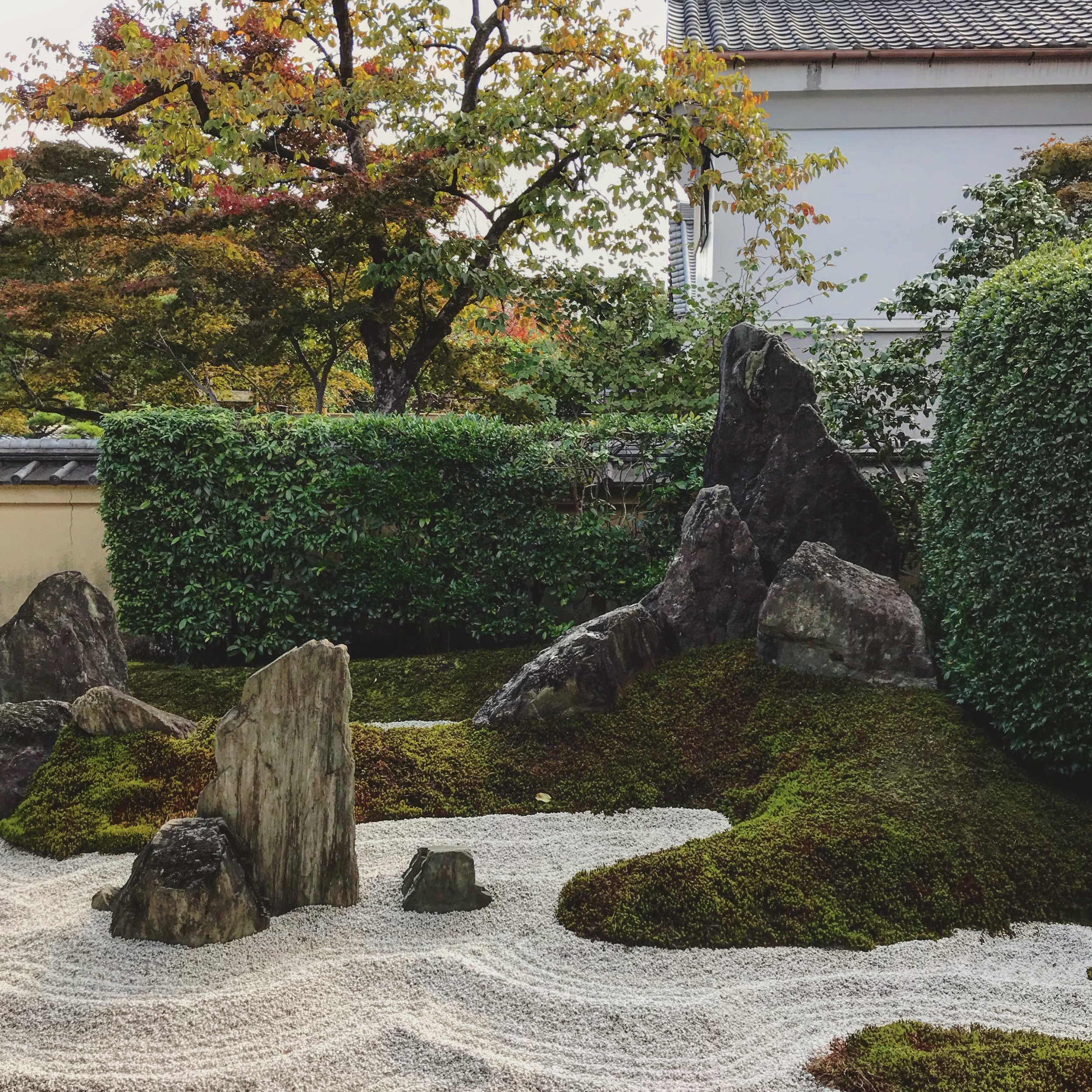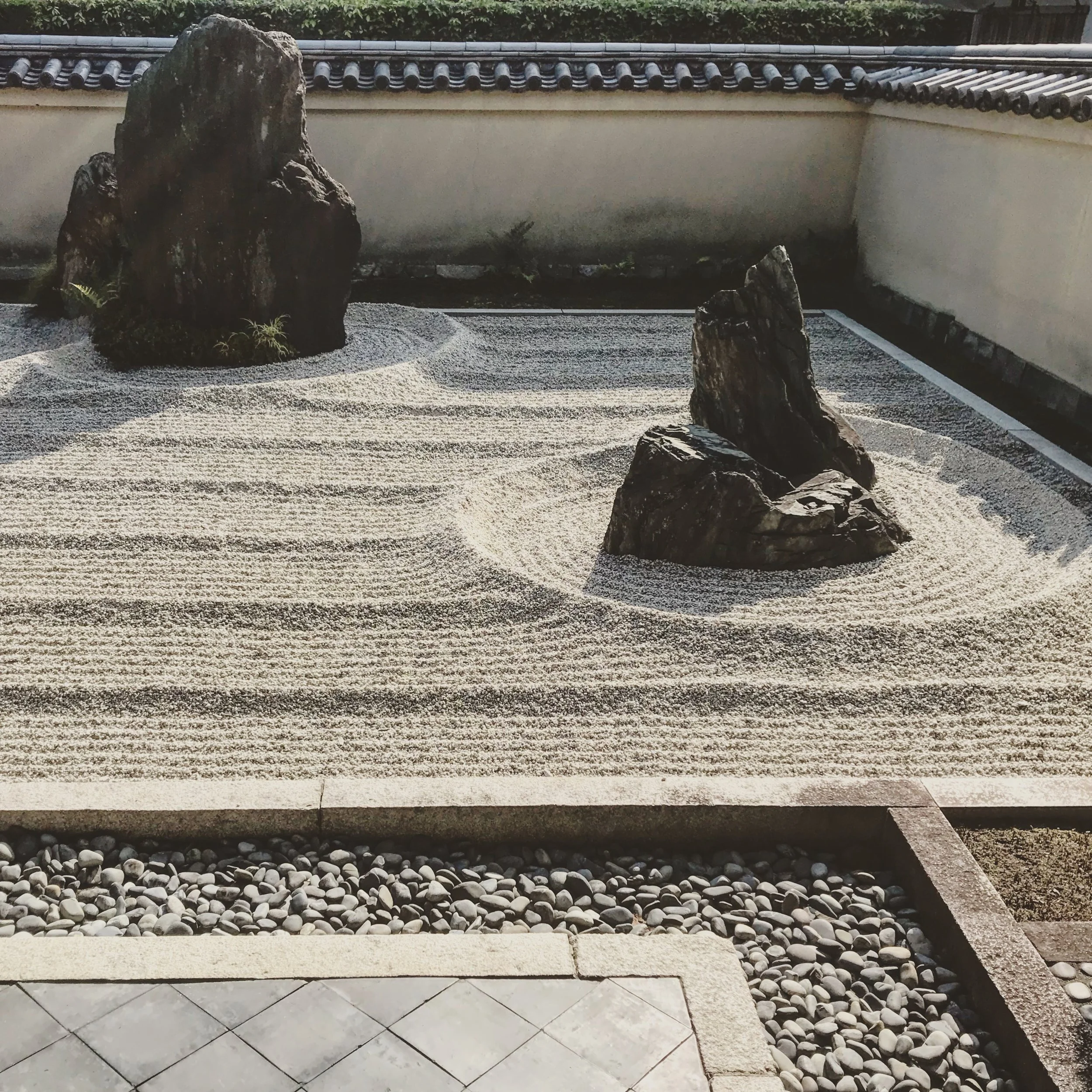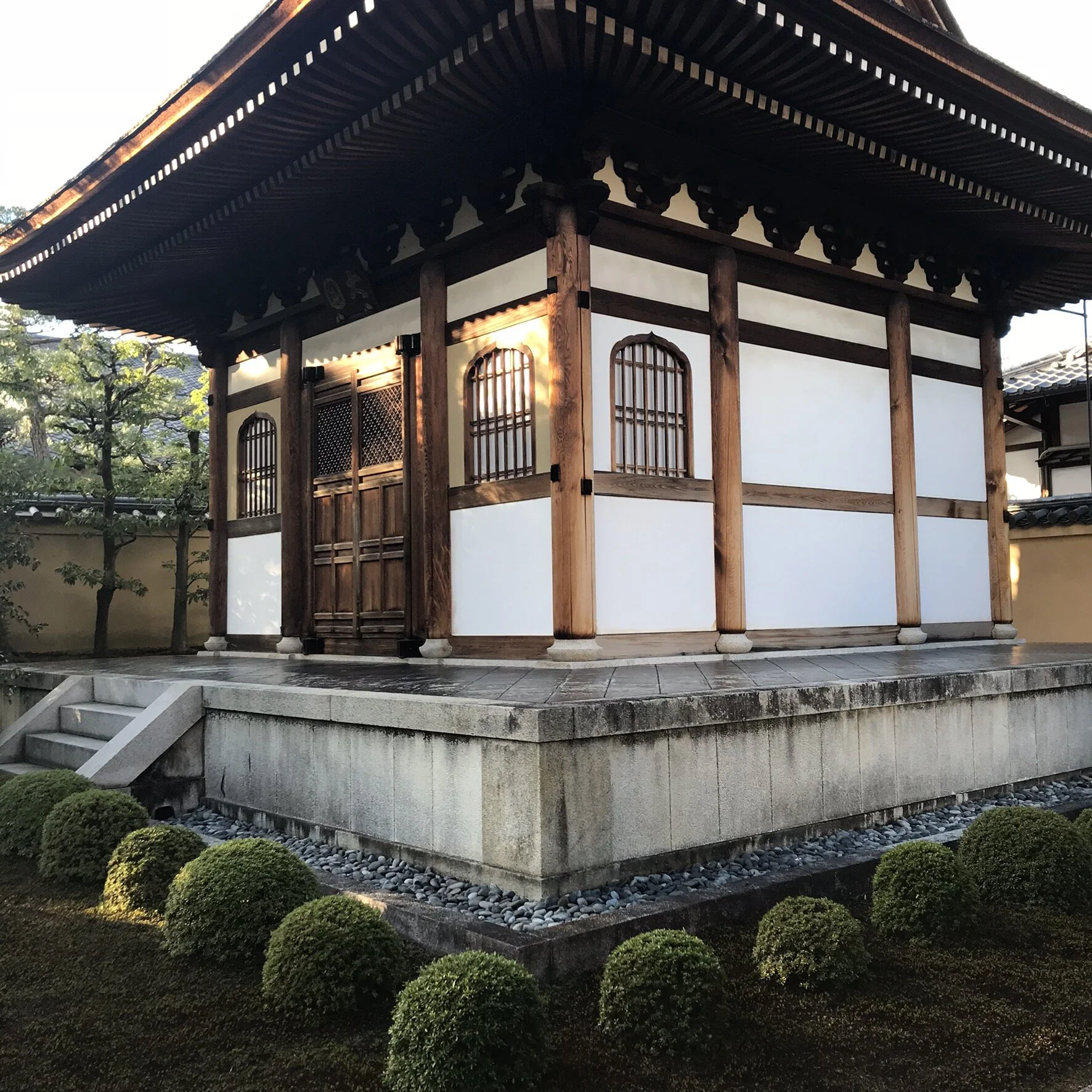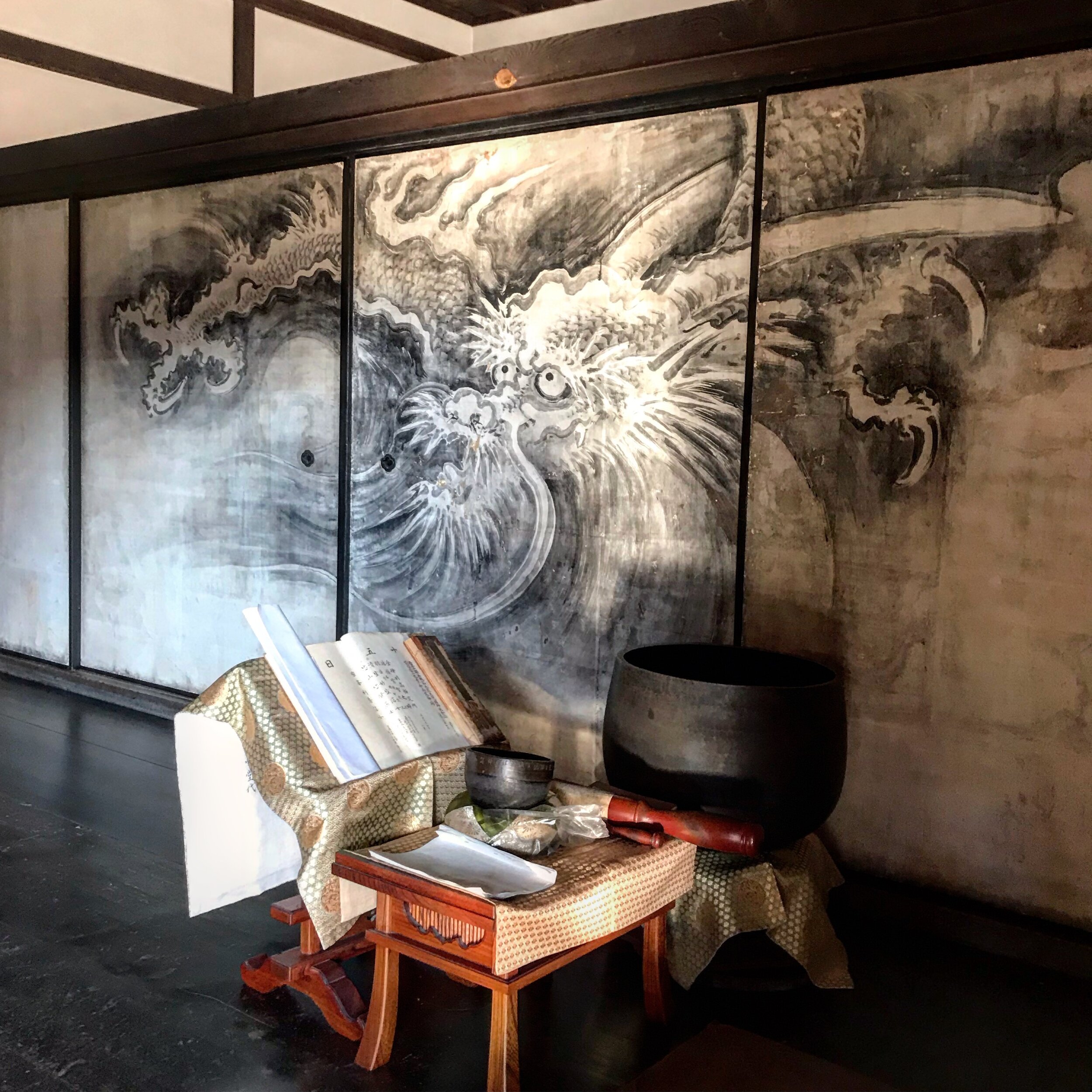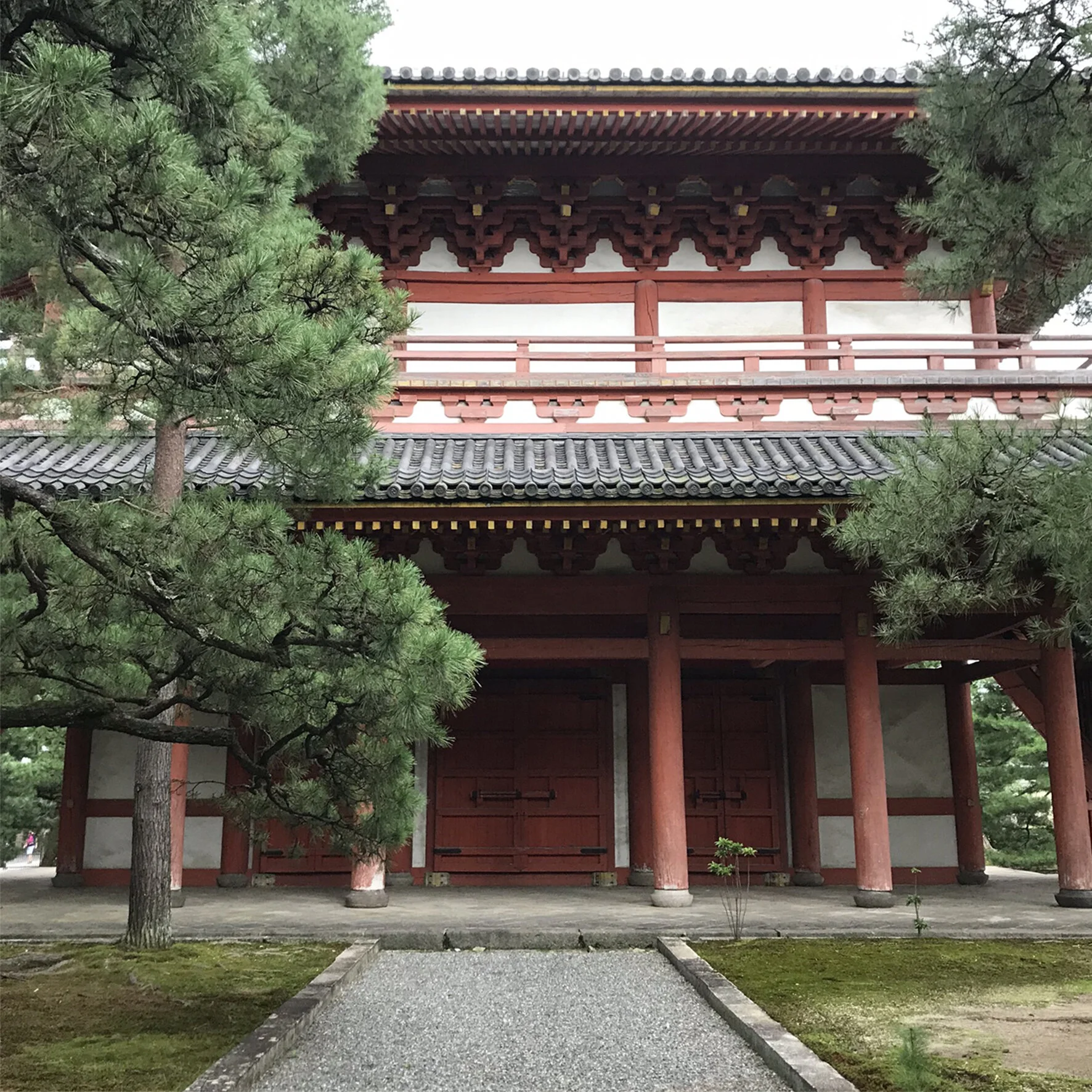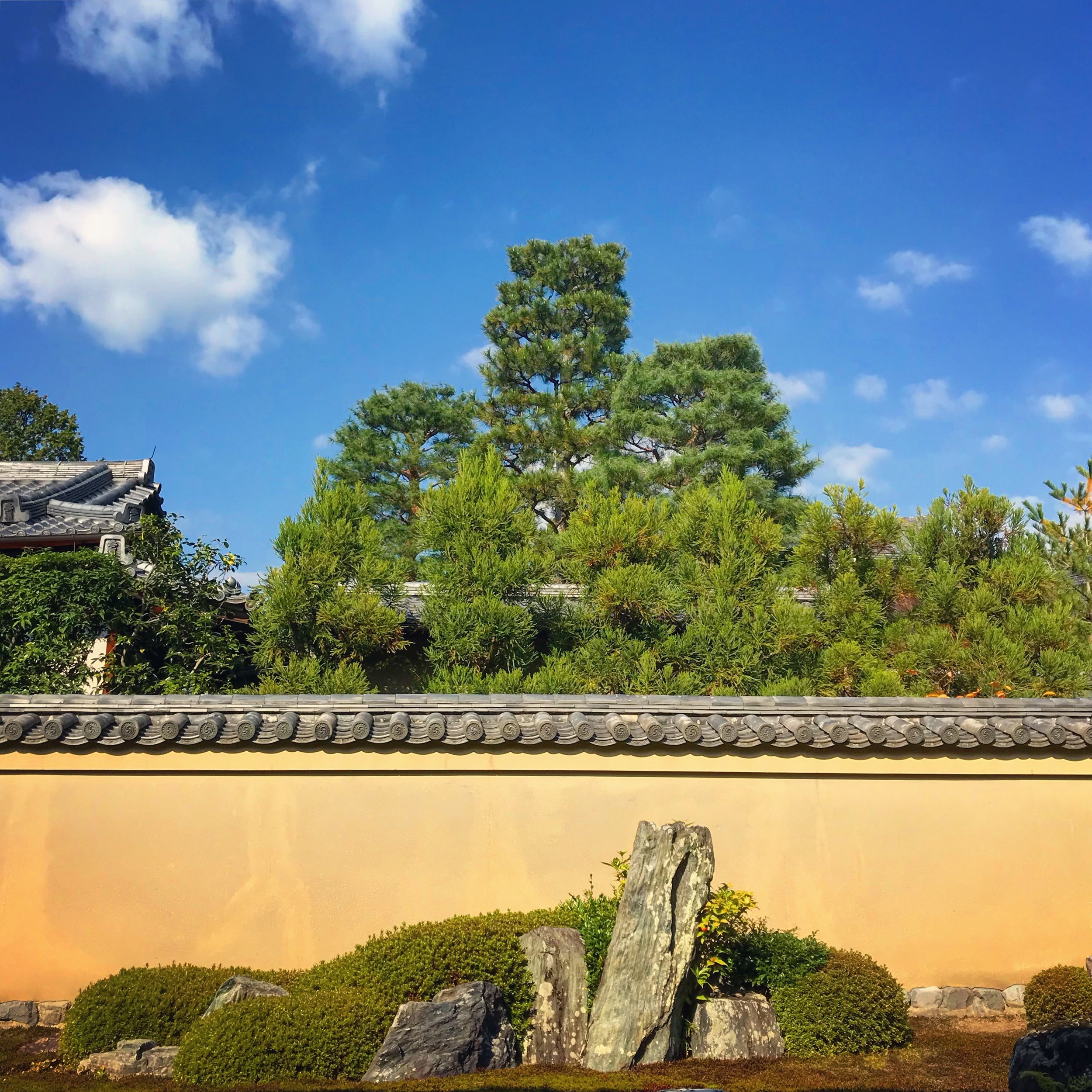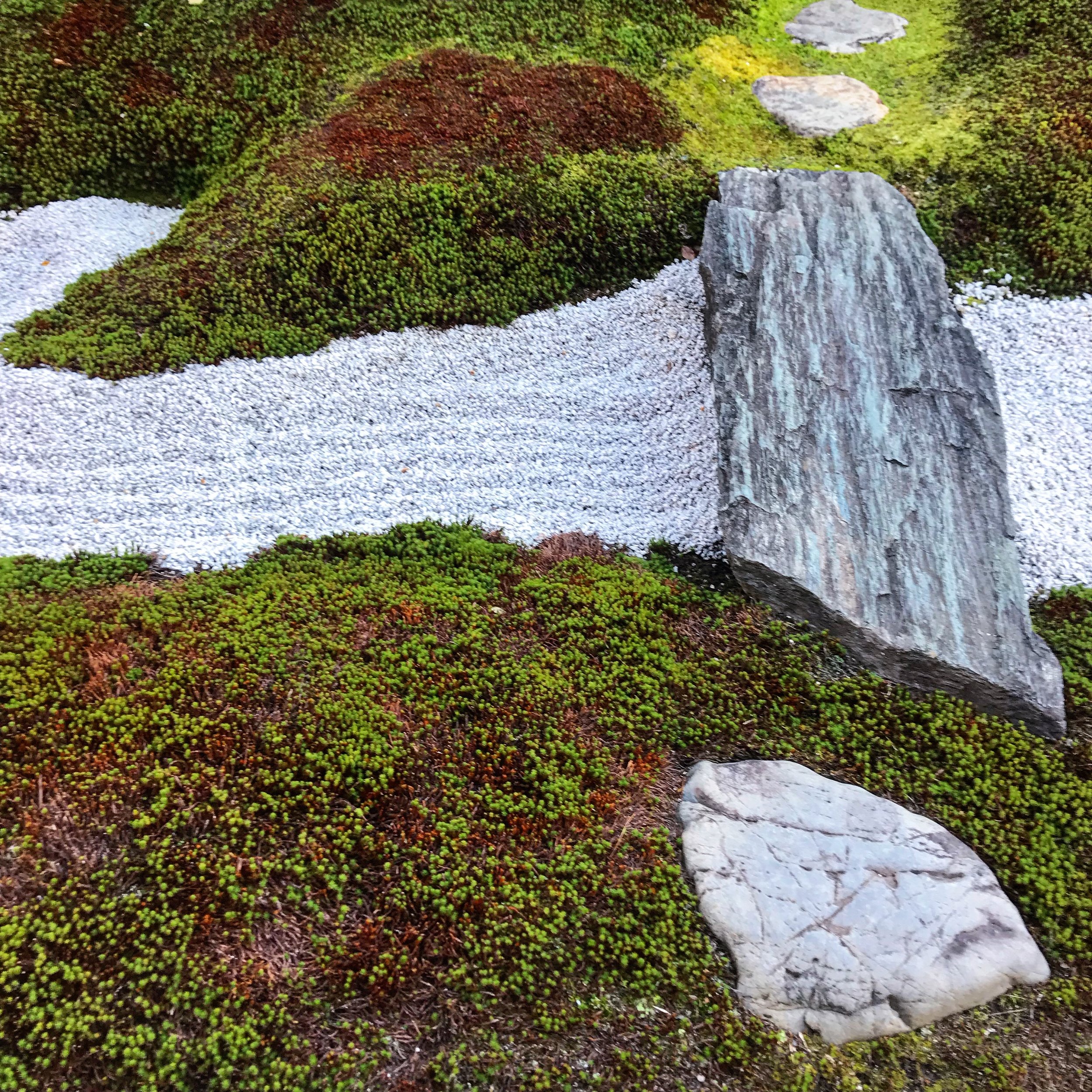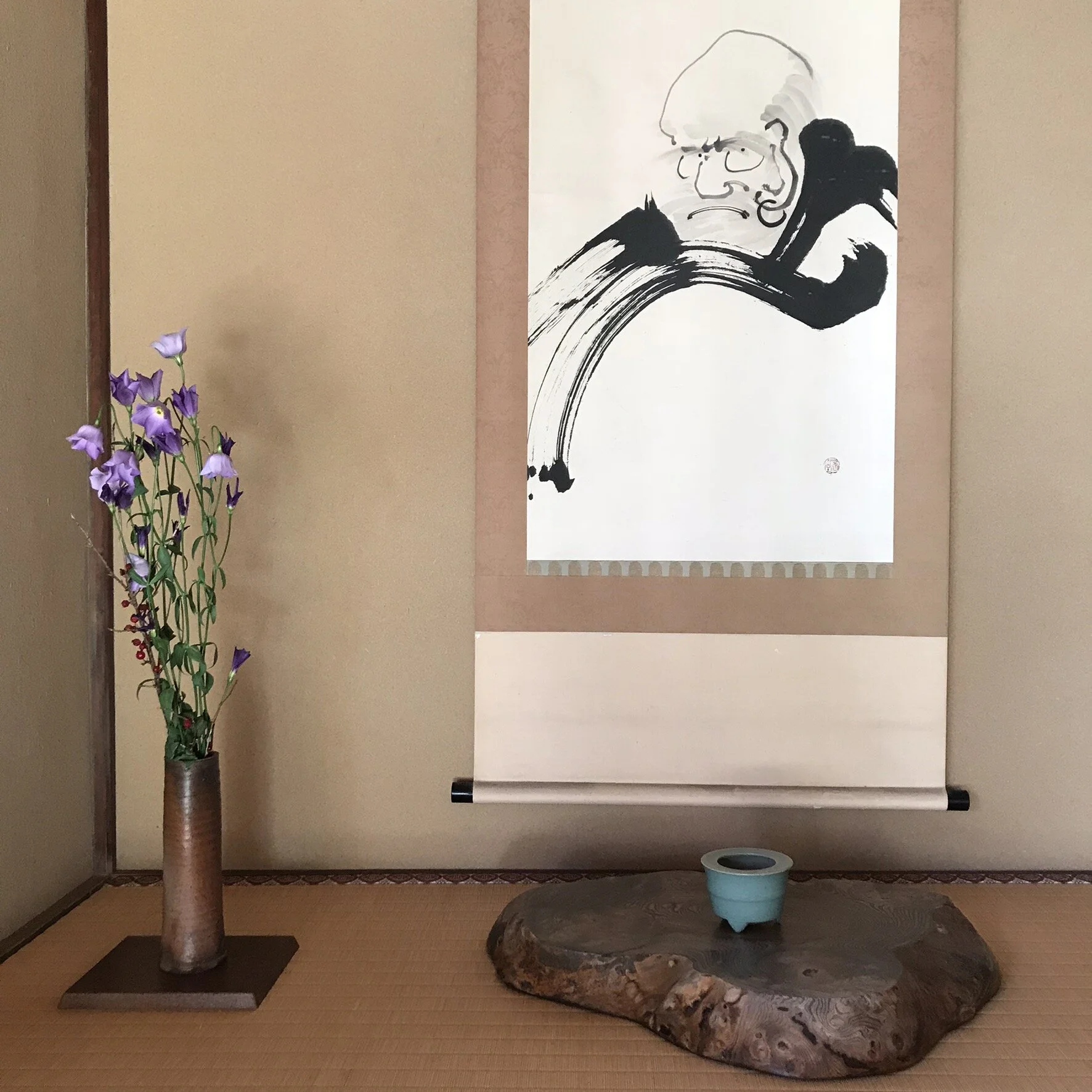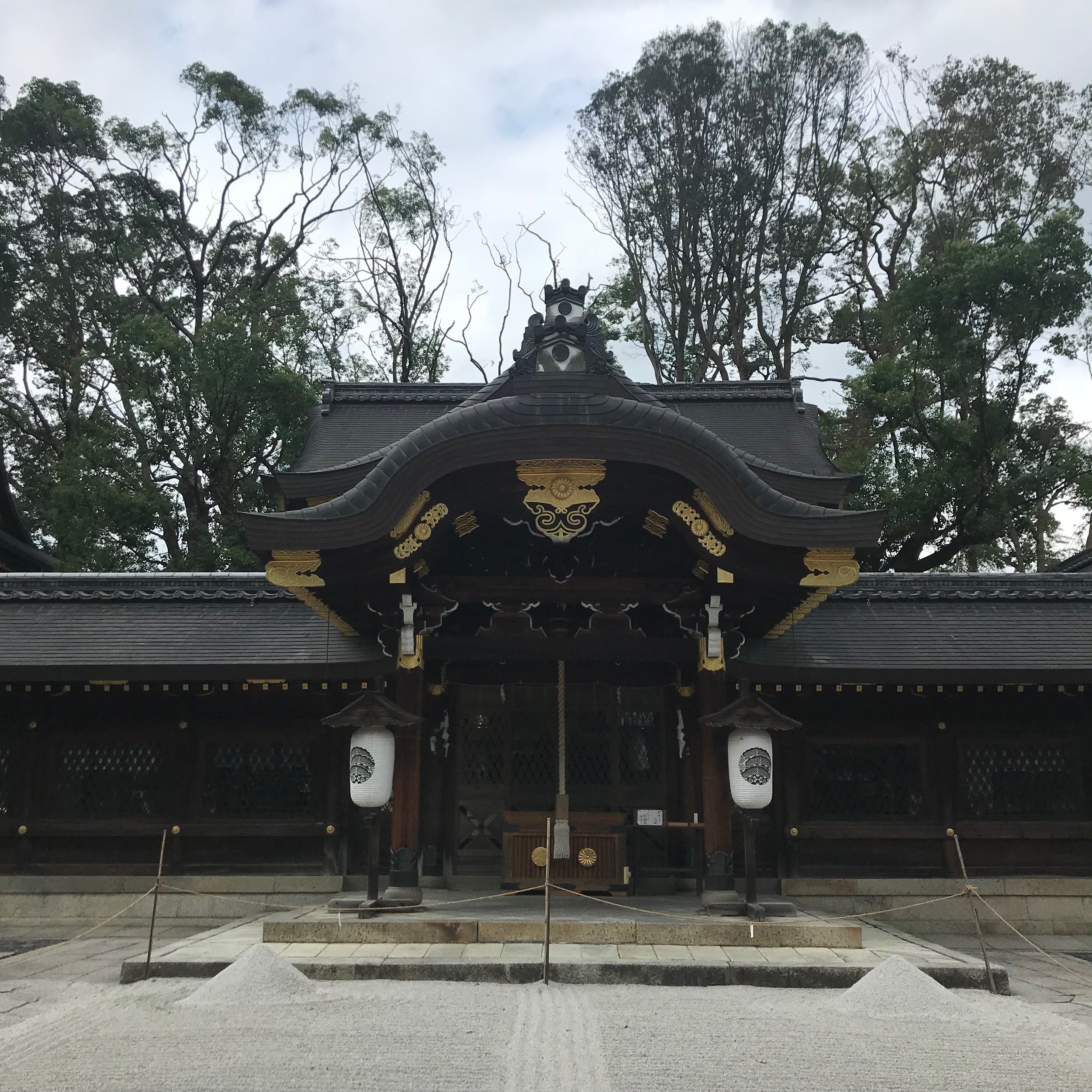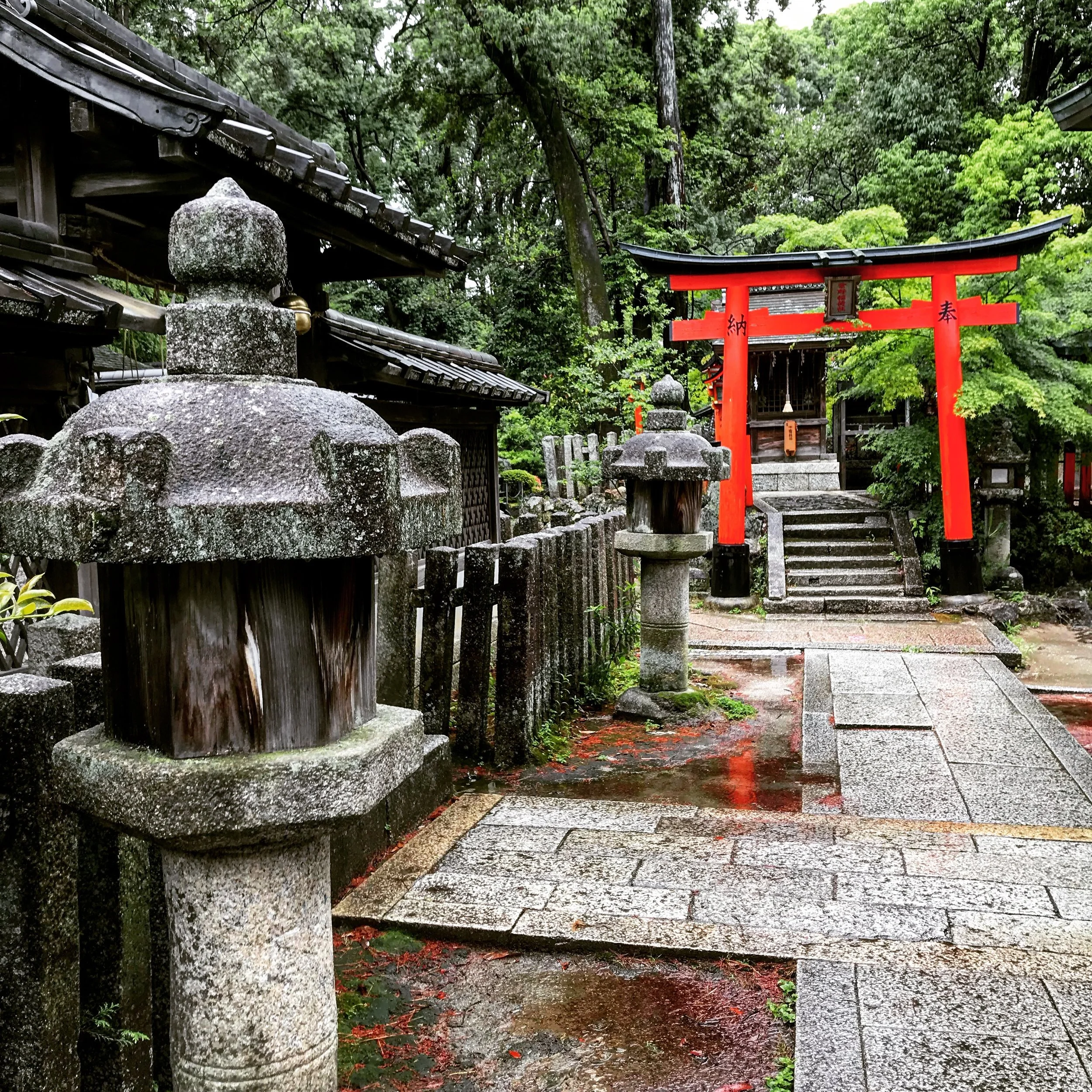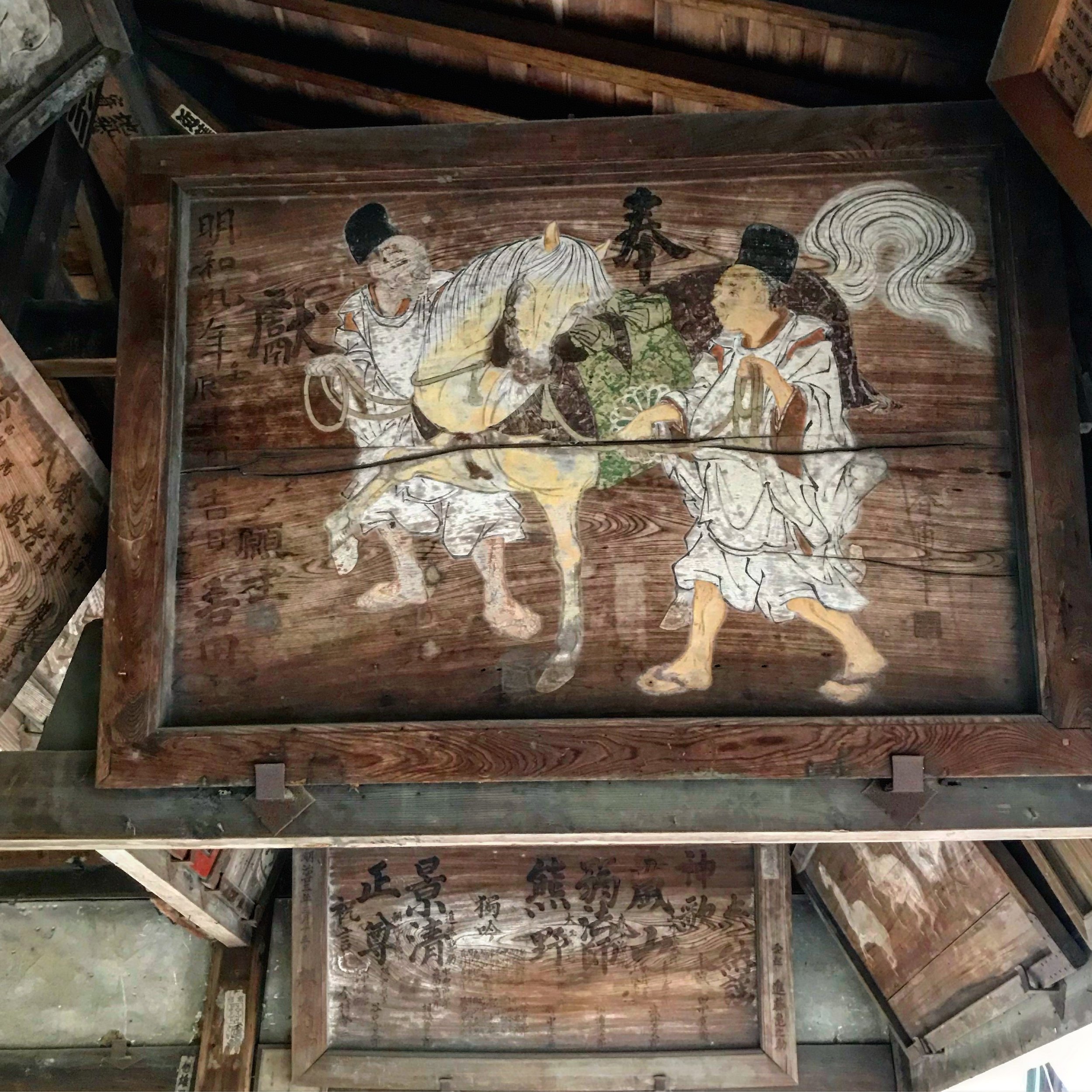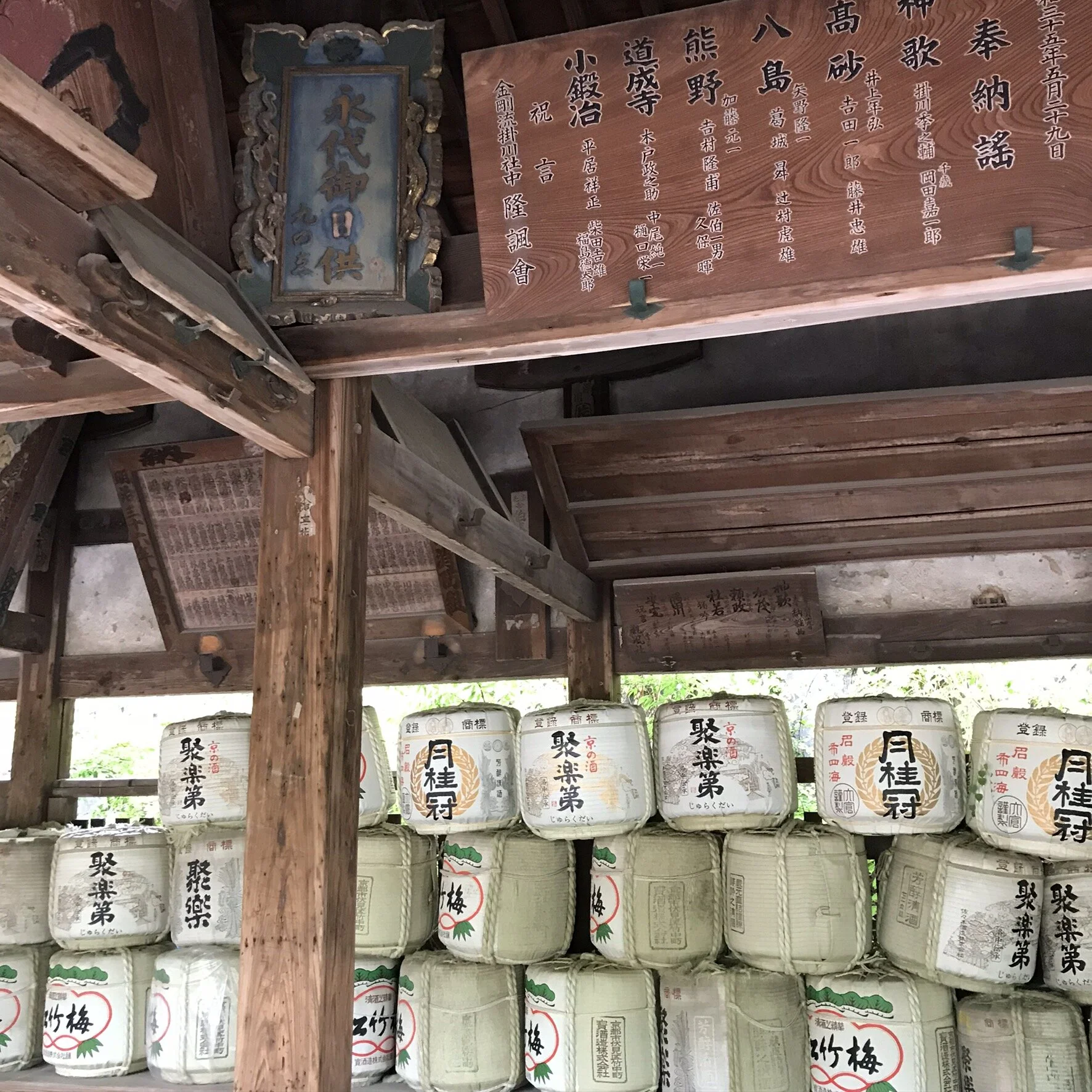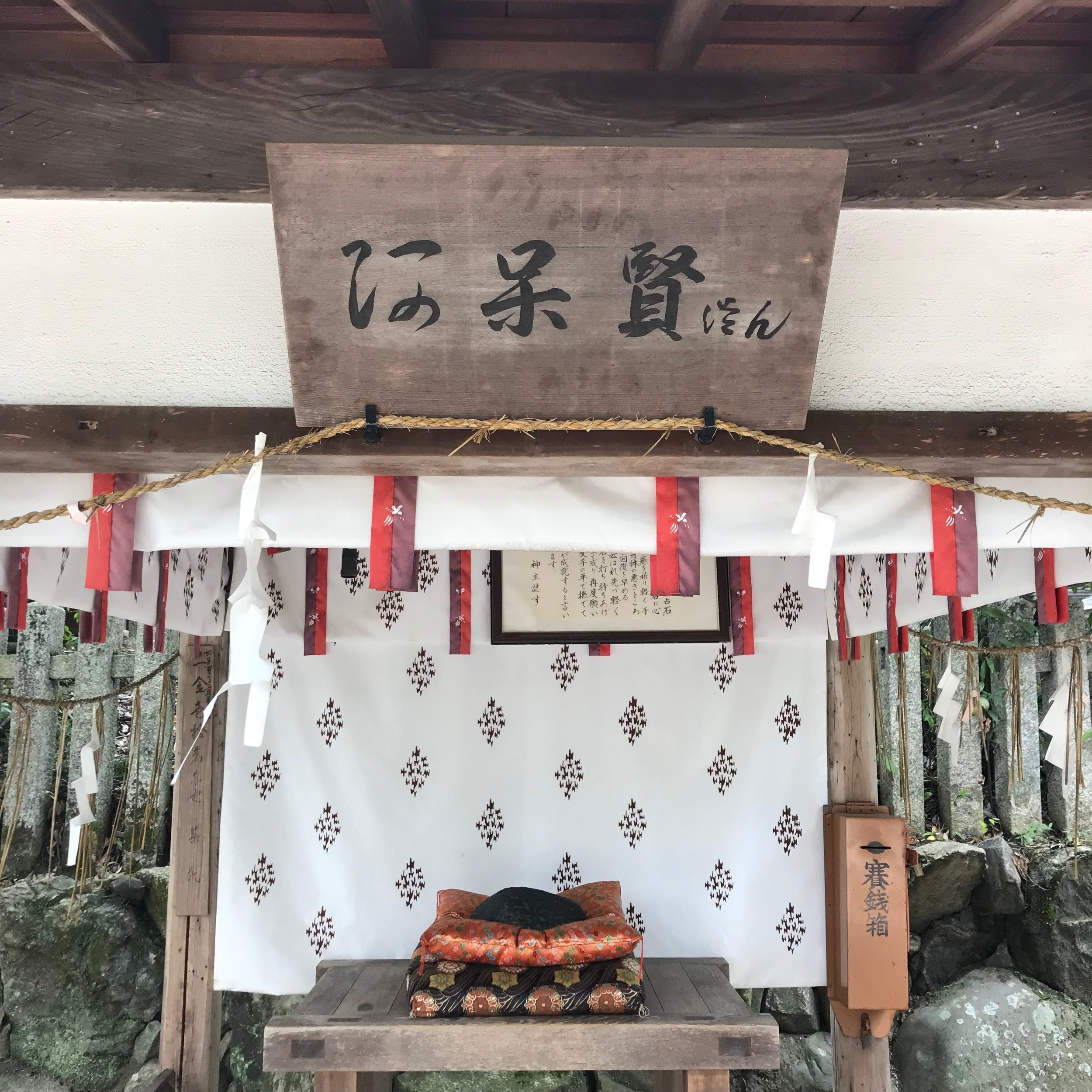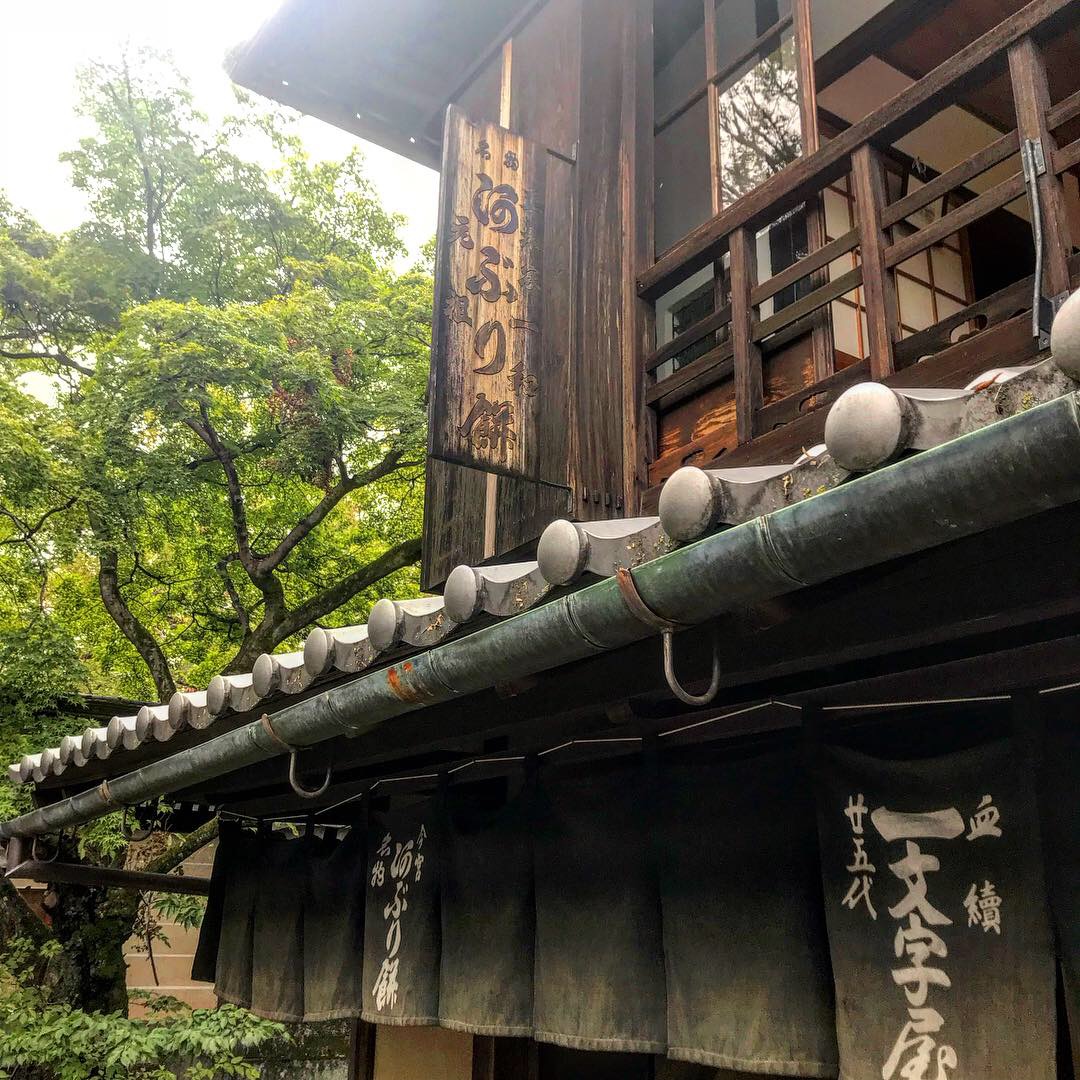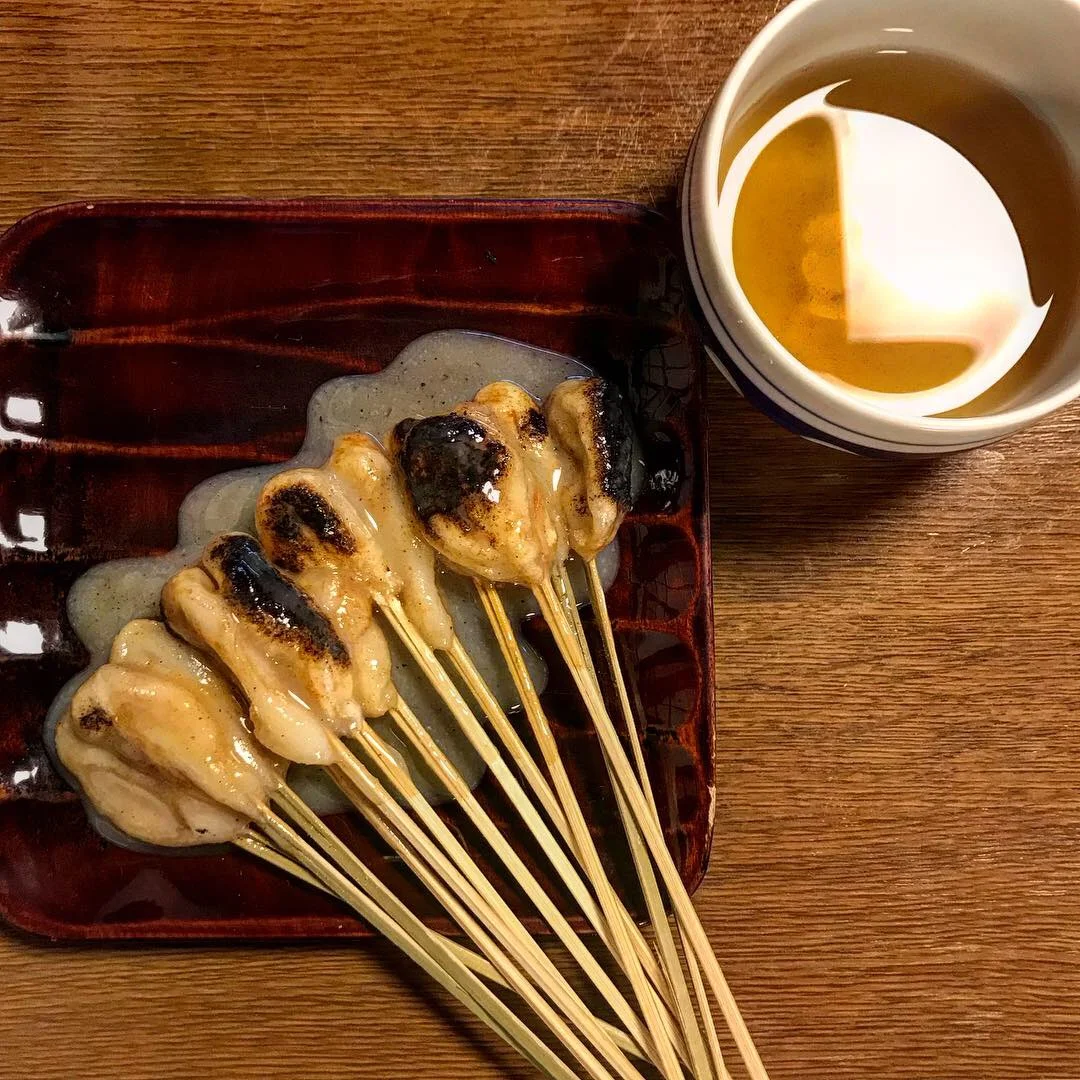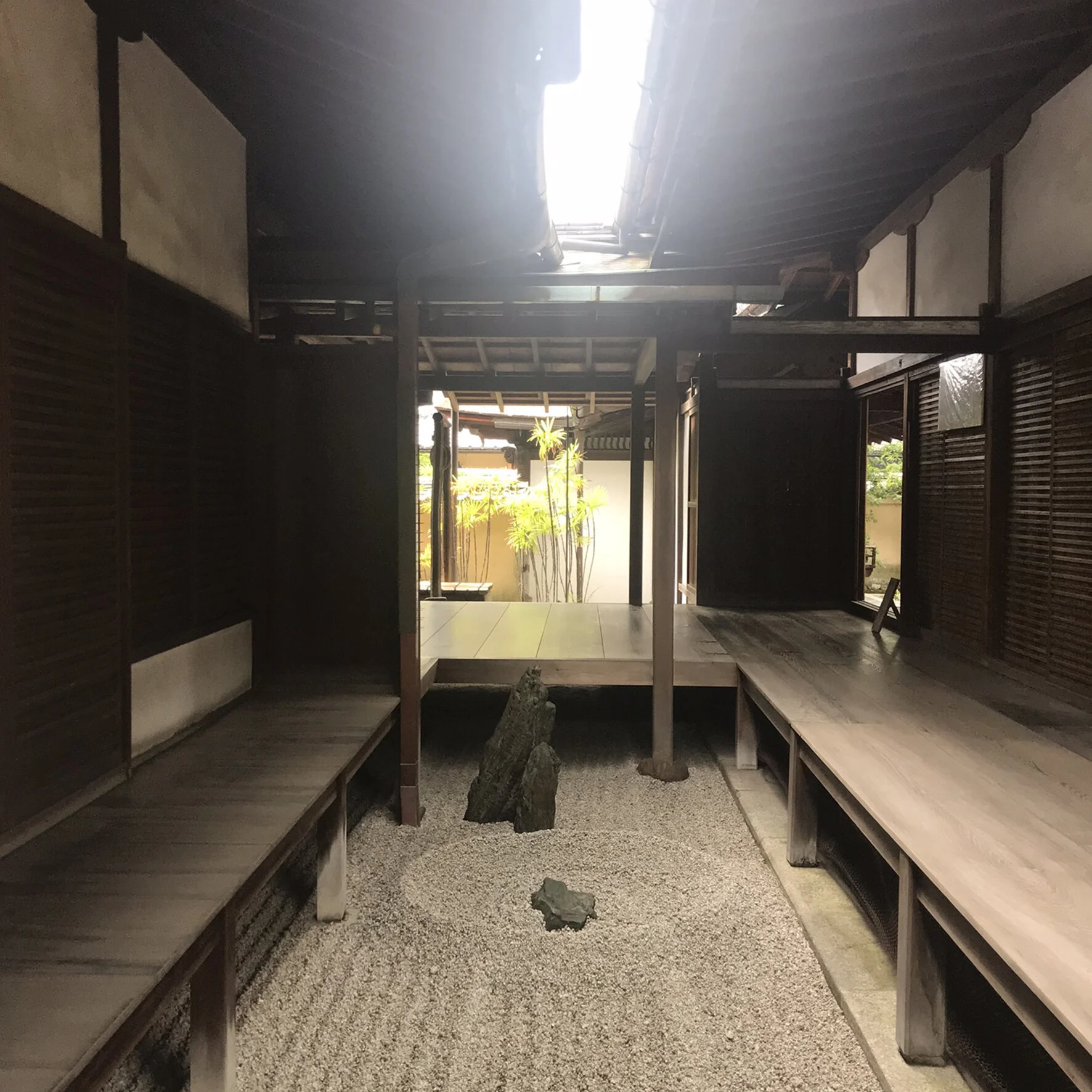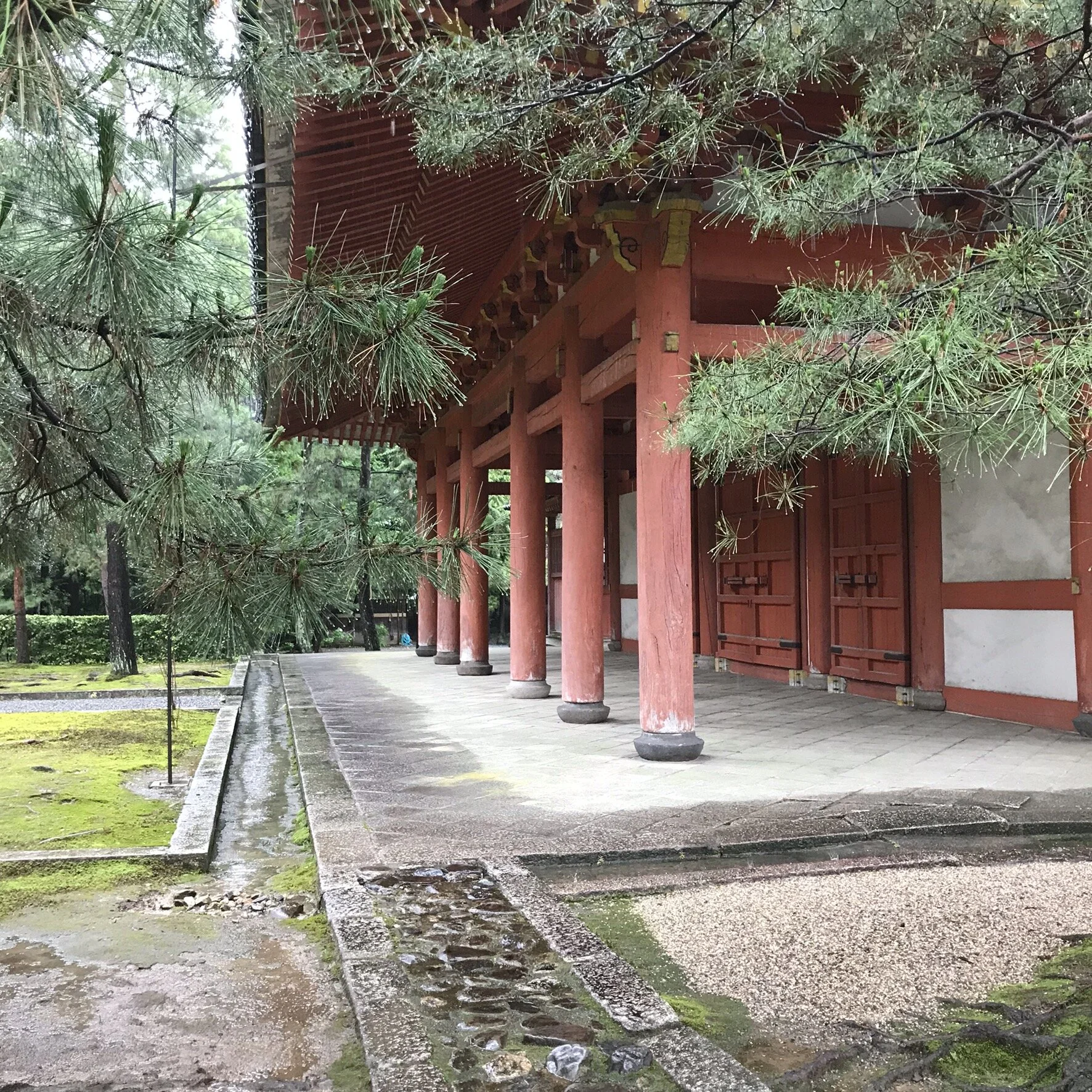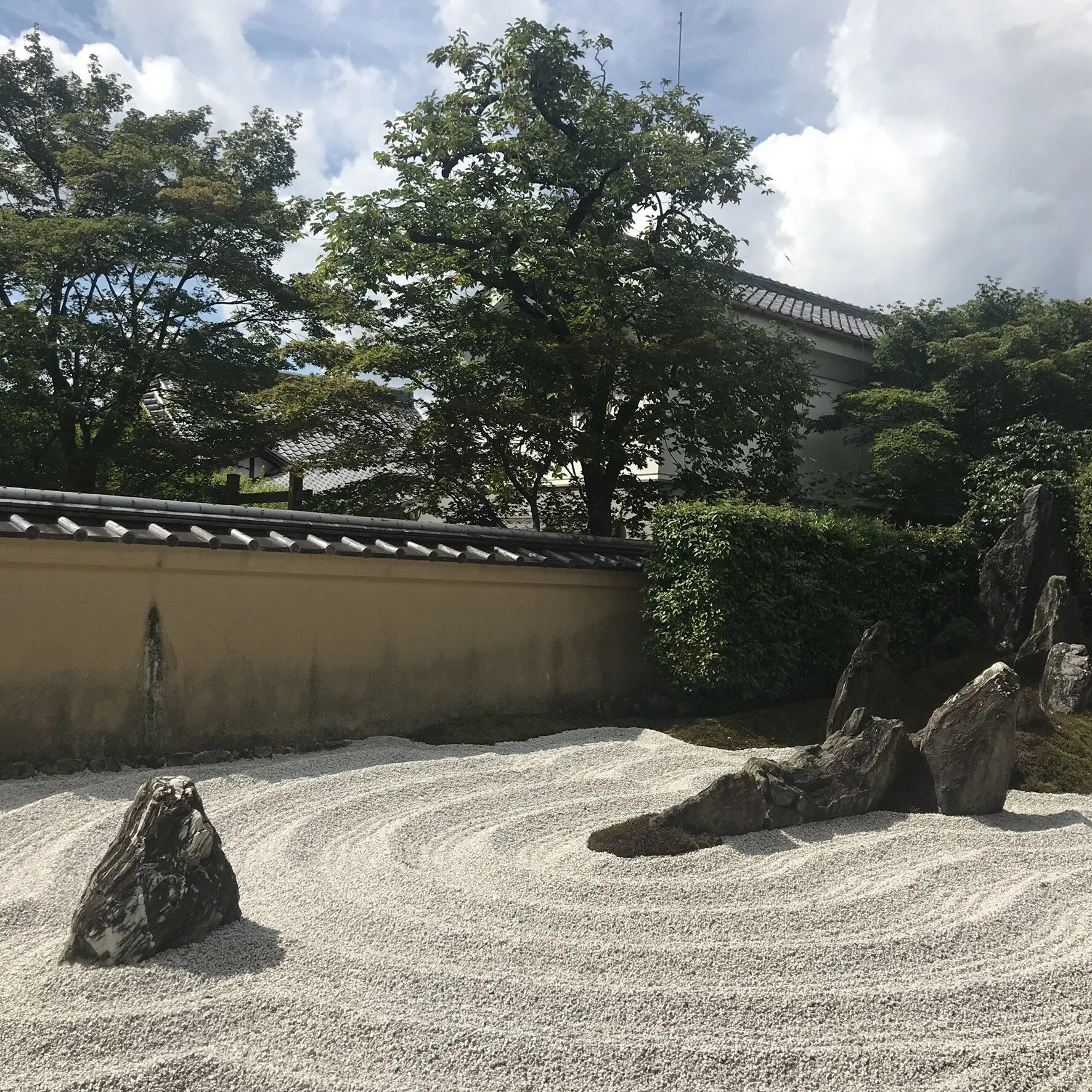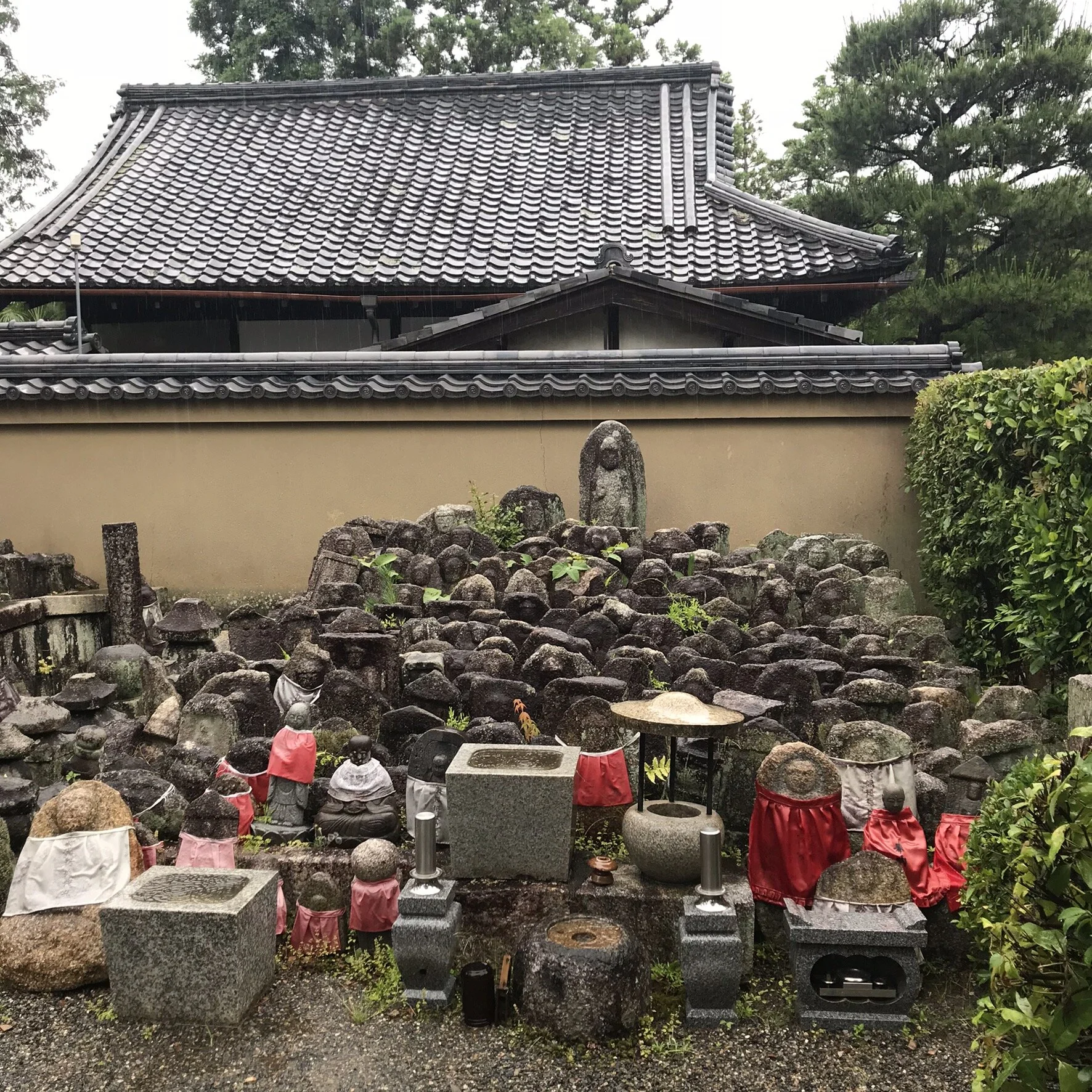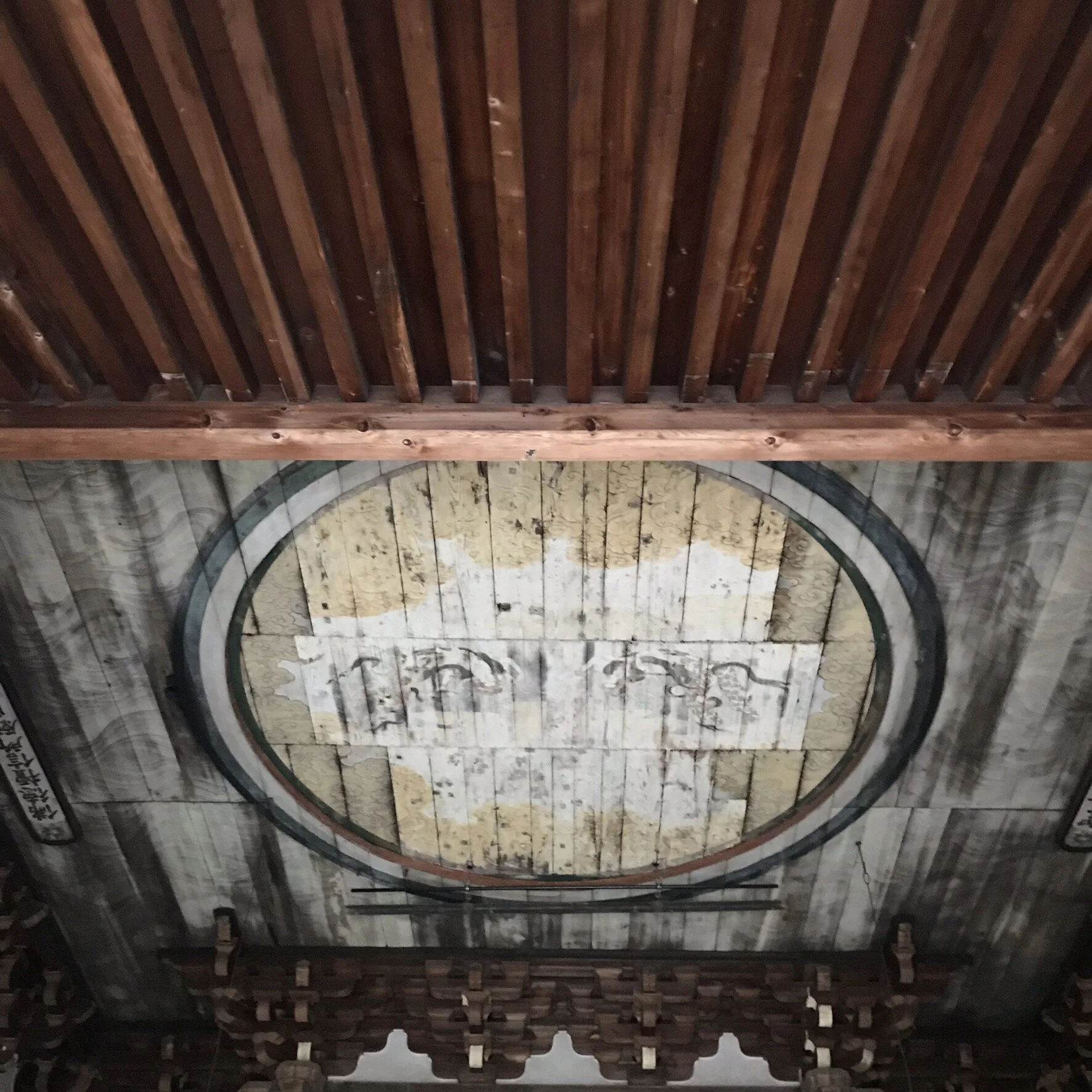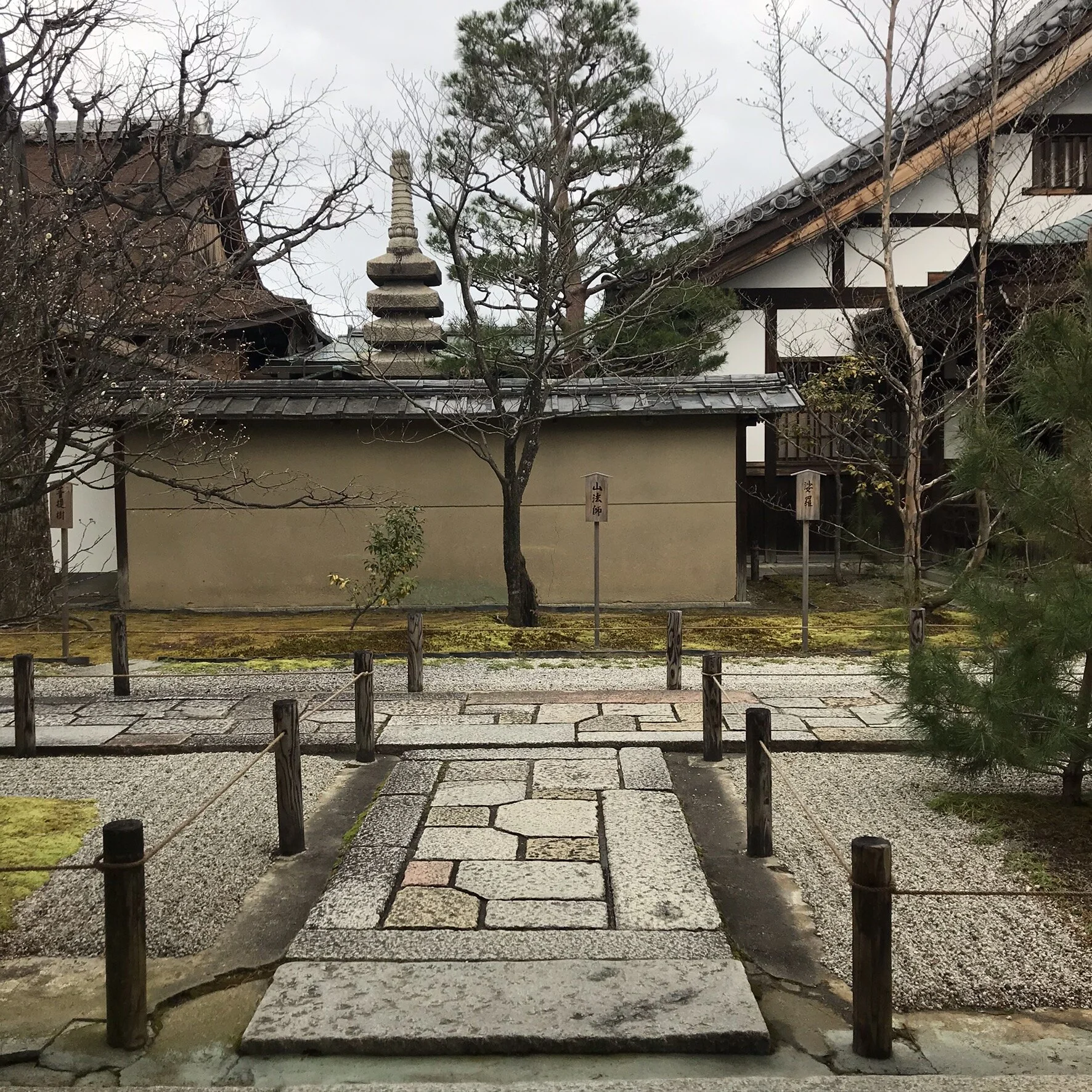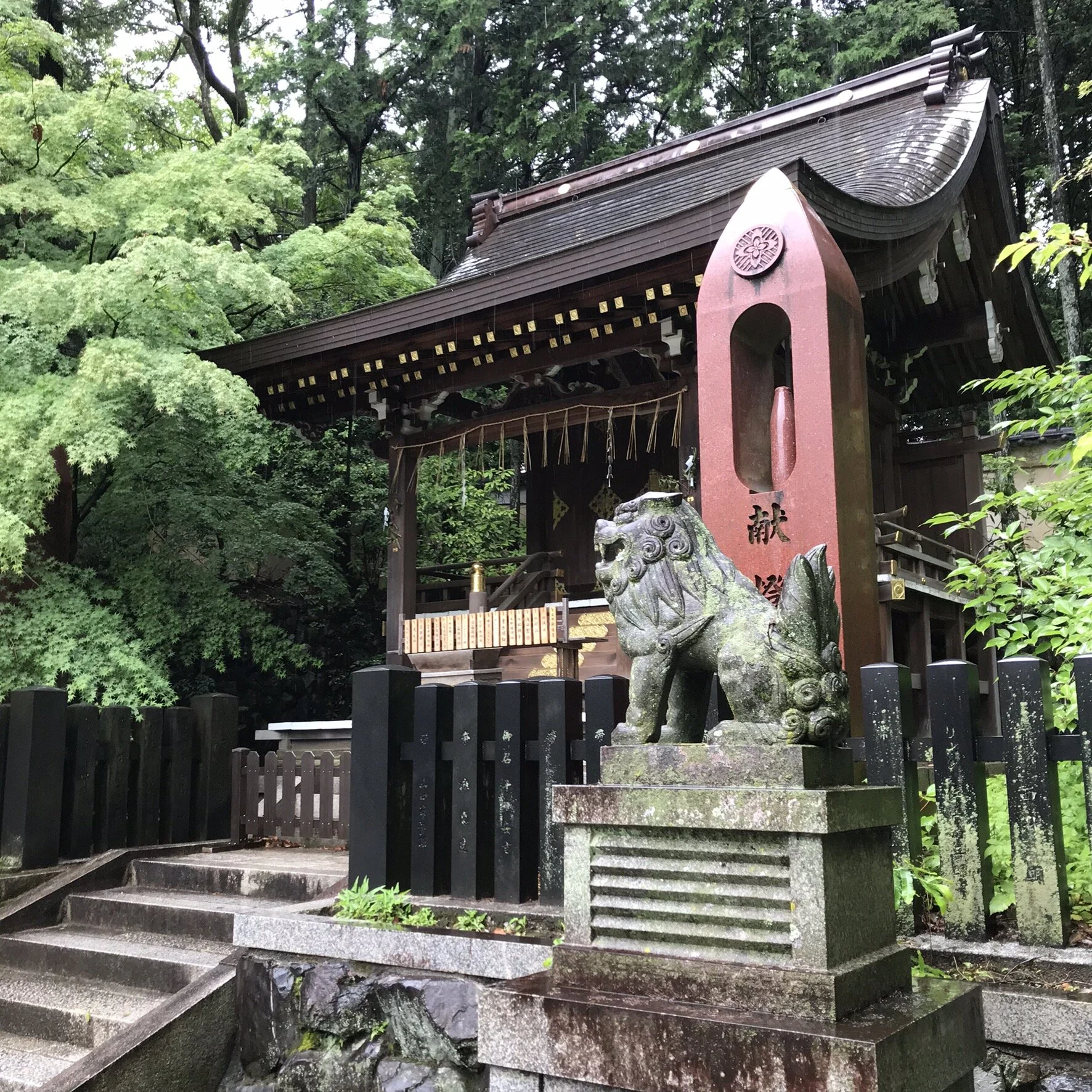Tea and Monks
“When you hear the splash of the water drops that fall into the stone bowl, you will feel that all the dust of your mind is washed away.”
-Sen no Rikyu, 16th c. tea master
Daitoku-ji is where the tea ceremony was by perfected by the most influential tea master in Japan’s history, Sen no Rikyu. His delicate taste set the standard for all tea masters who followed. This monastery is still a place for monks to engage in the serious study and practice of Zen. Several of the temples happen to have some of the most exquisite stone gardens in all of Kyoto, including my favorite, Daisen-in.
After spending time immersed in the Zen atmosphere, we finish our time with Japanese sweets and tea at a shop that has been serving the one and only item that’s on the menu for 1,000 years.
SITES VISITED
RYOGEN-IN The oldest structure on the grounds of this monastery, a garden which represents a mythical mountain that may be as tall is one million miles, and the smallest Zen garden in the world (so it says). Very powerful atmosphere in this very small temple.
DAITOKU-JI SANMON The gateway contains a statue whose creation led to Japan’s preeminent tea master being forced to commit ritual suicide.
ZUIHO-IN Another small temple in this monastery whose gardens were created by Shigemori Mirei, known as the master of modern Japanese gardens.
DAITOKU-JI BUTSUDEN Surrounded by enormous trees, we will have a chance to look inside the Buddha Hall dating back to the mid 1600’s.
DAISEN-IN The garden in this temple, plainly put, is what set me on the path to eventually coming to live in Japan. The ultimate example of garden as painting. Or painting as garden. It tells of the two lives- one following the path of Zen and the other which doesn’t.
IMAMIYA JINJA We leave Daitoku-ji and arrive at this nearby shrine, one of the oldest in all of Kyoto. There is an interesting story here which explains why young ladies come here to pray that they find a wealthy mate. Aside from that, in it’s unique atmosphere we can feel the true way of the spirits.
ICHIKAWA A traditional sweets shop that has been serving up aburi mochi since the Heian period. As we relax on the tatami mats of this traditional structure we will be able to reflect on the sublime spaces we inhabited earlier in the day.
LENGTH: 3.5 hours
MEETING POINT: Outside of exit 3 of Kitaoji Station

